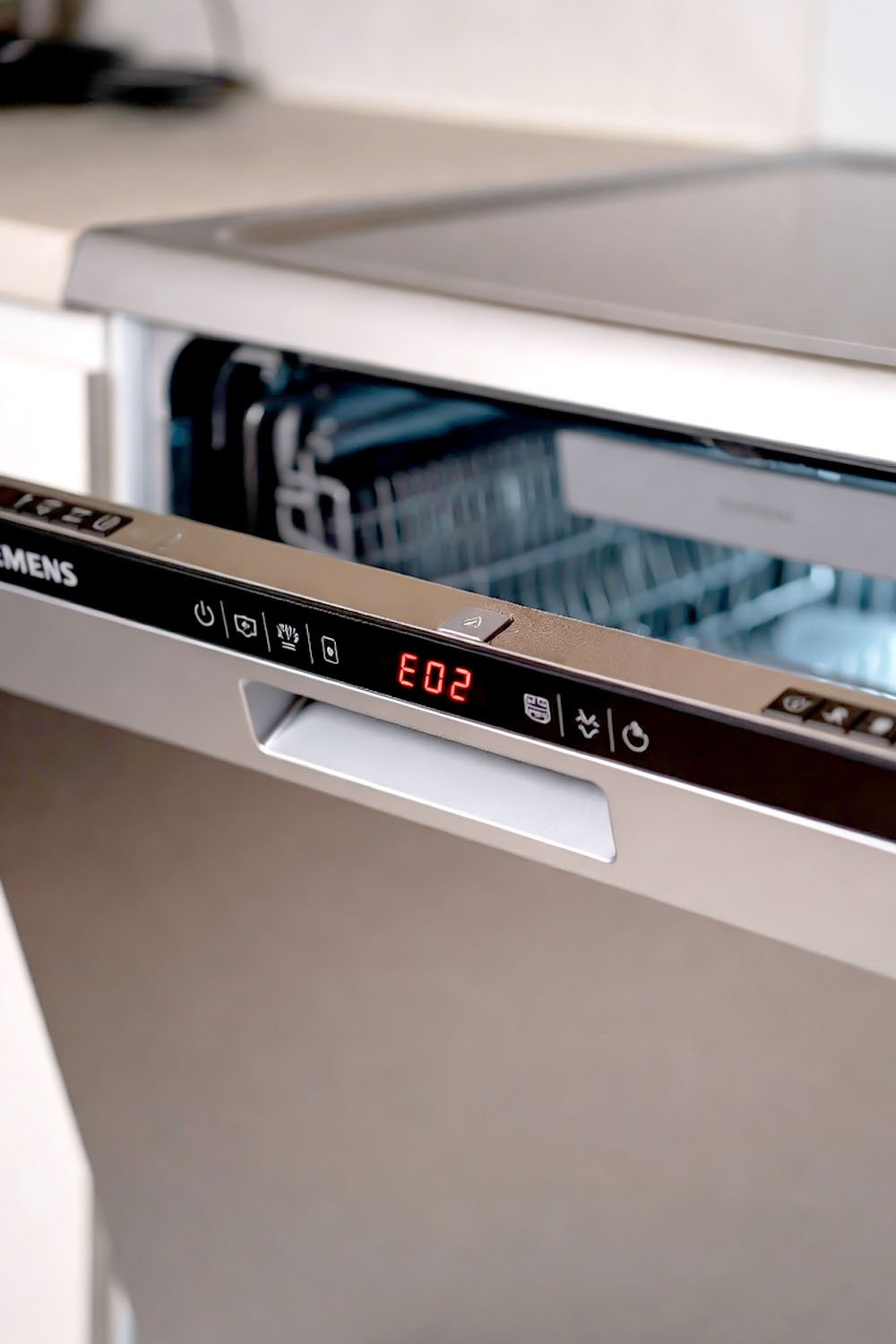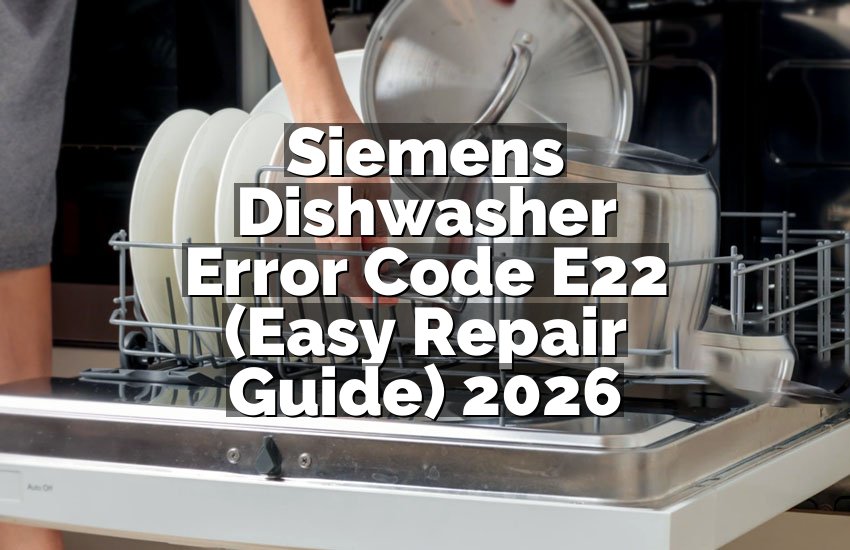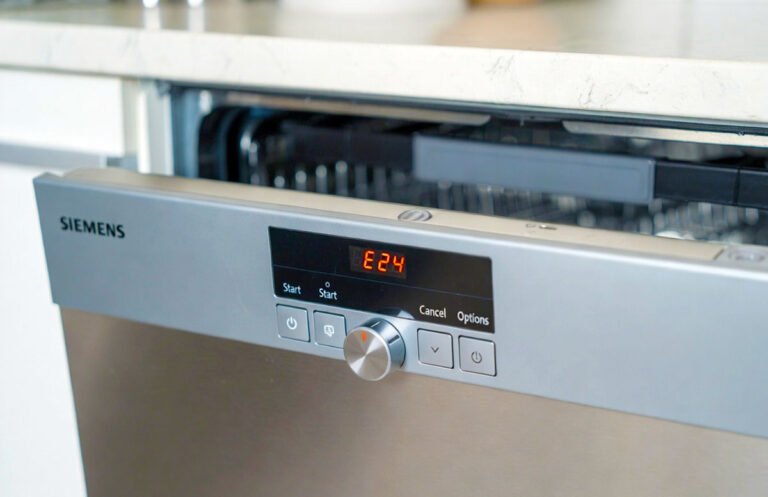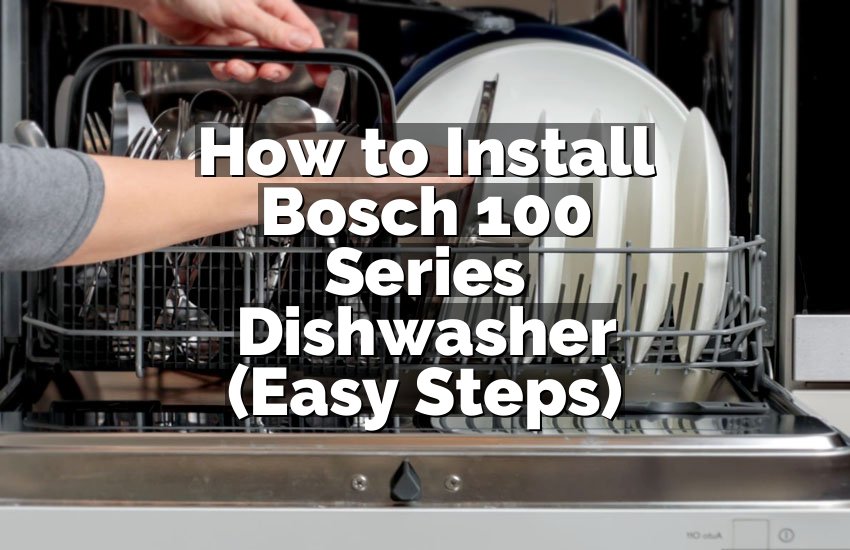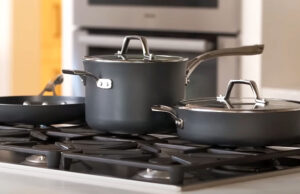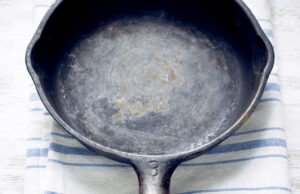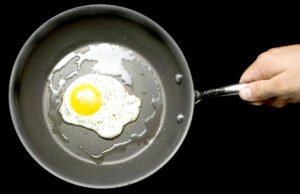As an Amazon Associate, I earn from qualifying purchases at no extra cost to you.
Bosch Dishwasher Not Spraying Water? Fix It Fast
The plates are stacked high, your sink is full, and the dishwasher is humming away. But when you open the door later, surprise—everything is still dirty. No spray, no shine, just disappointment. If your Bosch dishwasher is not spraying water, the problem feels huge. But relax, it can often be solved with simple checks. Curious? Let’s dig in, because you deserve clean dishes without stress.
Bosch Dishwasher Not Spraying Water – Easy Fixes Explained
Check the Water Supply
If your Bosch dishwasher is not spraying water, the very first thing to check is the water supply. Without steady water flow, the spray arms cannot work. Sometimes the water valve may be turned off, or the hose could be kinked. Even a small twist in the line can cut off the flow. So, make sure the hose is straight and the valve is fully open.
Another point to consider is water pressure. Dishwashers need good pressure to push water into the spray arms. If pressure is weak, the arms may not spin. A quick test is to turn on a nearby faucet. If the stream looks weak, the issue may be the household plumbing. Fixing pressure may need help from a plumber.
Also, check the inlet valve inside the dishwasher. This small part controls water coming into the machine. If it is clogged with dirt or hard water deposits, water will not enter properly. Cleaning or replacing it can solve the issue. Always turn off power and water before touching it.
Lastly, if everything looks fine but no water enters, the valve itself may be faulty. Replacements are available online and in stores. It is not too expensive and can often restore normal function quickly. Skipping this check may lead you in circles.
- Make sure the water supply valve is open
- Look for twists or bends in the hose
- Test home water pressure
- Inspect and clean the inlet valve
- Replace faulty valve if needed
Clean the Spray Arms
If water enters but does not spray, the spray arms may be blocked. Food bits, grease, or even tiny seeds often clog the holes. When that happens, the arms stop spinning, leaving your dishes dirty. Take the spray arms out gently. They usually twist or snap off easily.
Run water through the arms to see if holes are blocked. If clogged, use a toothpick, small brush, or thin wire to clear them. Avoid using sharp objects that might damage the plastic. Warm soapy water also helps loosen grease. Take your time here, because one tiny block can ruin the wash.
After cleaning, spin the spray arms by hand before putting them back. They should move freely without sticking. If movement feels rough or stiff, check for cracks or worn parts. Replacements are simple to find and install. A damaged spray arm cannot spray water properly no matter how clean it is.
Keeping spray arms clean is not a one-time job. Over time, food and minerals will collect again. Doing a quick check every few months can save you from bigger issues later. It only takes a few minutes but keeps the dishwasher running strong.
- Remove spray arms and check for dirt
- Clean holes with brush or toothpick
- Wash with warm soapy water
- Ensure arms spin freely before reinstalling
- Replace damaged arms if needed
Inspect the Pump and Filter
The pump pushes water to the spray arms. If it is blocked or broken, water will not move. Start by checking the filter, which sits near the bottom of the dishwasher. Food scraps often get stuck there. A clogged filter reduces water flow and stops the spray arms.
Remove the filter and rinse it under running water. Use a soft brush to scrub away grease. Never use harsh tools that might tear the mesh. Clean the filter every few weeks, because dirty filters also cause bad smells. If it looks damaged, replacing it is the best choice.
Next, look at the pump. Food, glass pieces, or small objects can block it. Carefully remove anything stuck inside. If the pump makes strange noises, that could mean it is wearing out. Replacing a pump is harder but still possible if you follow instructions.
After cleaning, run a short wash cycle to test. If water sprays strongly again, then you know the filter or pump was the issue. If not, further checks are needed. Do not ignore strange sounds, as they often point to a bigger problem.
- Take out and clean the filter
- Remove food or objects from pump
- Listen for unusual pump noises
- Replace damaged filter
- Test cycle after cleaning
Check the Motor and Impeller
The motor is the heart of the dishwasher. It drives the pump and helps move water through the spray arms. If the motor is weak or fails, no water will spray. Listen carefully when the dishwasher runs. If you hear a humming sound but no spray, the motor might be stuck.
Sometimes, the impeller inside the motor gets blocked. This small fan-like part pushes water forward. Food or small objects can jam it. Removing the blockage can bring the motor back to life. However, if the impeller is broken, the whole motor may need replacement.
Testing the motor requires caution. Always turn off power before checking. If the motor feels hot or smells burnt, it is likely failing. At that point, replacement is safer than repair. Bosch motors are available but can be pricey. It may be worth asking a professional if you are unsure.
Still, many times the problem is not the motor itself but dirt blocking it. Cleaning around the impeller and motor housing may be enough. Try this before buying a new part. Simple cleaning has fixed many dishwashers that seemed completely dead.
- Listen for humming or silence from motor
- Check impeller for blocks
- Clean motor housing carefully
- Replace motor if overheated or burnt
- Seek professional help if unsure
Examine the Float Switch
Dishwashers have a float switch that controls water levels. It prevents the machine from overfilling. If the float gets stuck in the wrong position, the dishwasher thinks it is full even when it is not. As a result, no water sprays.
Look at the float in the bottom area. It usually looks like a small plastic cup. Move it up and down gently to see if it sticks. If dirt, soap, or grease is around it, clean everything. Warm water and mild soap work well. A free-moving float is important for correct water flow.
The float switch itself can also fail electrically. If it does not send the right signal, water will not enter. Testing with a multimeter can confirm this. Replacing the switch is not too difficult, but you should always unplug the dishwasher before starting.
Sometimes the float arm gets bent or stuck under debris. Make sure it is straight and moves smoothly. This small part has a big role, and ignoring it can leave you with dry spray arms. A clean and working float switch often restores normal spraying.
- Find the float inside dishwasher
- Clean dirt and soap from it
- Test float movement by hand
- Replace faulty float switch if needed
- Ensure float arm is straight
Run a Maintenance Cycle
Even when everything works, dishwashers need care. Hard water, soap scum, and grease build up over time. This buildup clogs parts and stops water from spraying. Running a maintenance cycle clears hidden dirt and keeps things running smoothly.
Fill a dishwasher-safe cup with white vinegar and place it on the top rack. Run a hot cycle without dishes. Vinegar breaks down grease and mineral deposits. Once done, sprinkle some baking soda on the bottom and run another short hot cycle. This removes odors and freshens the machine.
You can also use dishwasher cleaning tablets made for this purpose. They are easy and safe. Just place one inside and run a hot cycle. Regular cleaning prevents bigger problems and keeps the spray arms free.
Making this a routine saves time and money. A simple cleaning every month can prevent most spray issues. It is like giving your dishwasher a fresh start. If water sprays weakly again, repeat the process before calling for repair.
- Use vinegar and hot cycle
- Sprinkle baking soda for freshness
- Try dishwasher cleaning tablets
- Clean monthly for best results
- Prevent clogs before they happen
A Bosch dishwasher not spraying water can feel frustrating. But most of the time, the cause is simple—clogged parts, weak water flow, or small faults. With patience and basic checks, you can often fix it yourself. Regular cleaning also keeps it from happening again. Clean dishes are worth a little care.
| Problem | What to Do | Extra Tip |
|---|---|---|
| No water supply | Check valve and hose | Ensure strong water pressure |
| Clogged spray arms | Remove and clean holes | Replace if cracked |
| Blocked pump/filter | Wash filter and clear pump | Replace if damaged |
| Motor issue | Test impeller and listen for noise | Replace if burnt |
| Float stuck | Clean float and check switch | Replace faulty switch |
| Build-up inside | Run vinegar or cleaning cycle | Do monthly cleaning |
Do Bosch dishwashers stop spraying water because of low pressure?
Yes, low water pressure can stop Bosch dishwashers from spraying water. Spray arms rely on strong water flow to spin and wash dishes. If the pressure is weak, the arms may not move at all. This can make dishes look dirty even after a full cycle.
To check, run the kitchen faucet. If the stream looks weak, your home’s water system may be the issue. Dishwashers need steady pressure to perform well. Sometimes the supply hose also gets bent or twisted, cutting off water. Straightening it can quickly fix the problem.
Another reason is buildup in the inlet valve. Hard water deposits can reduce the flow, even if the main pressure is fine. Cleaning or replacing the valve often helps restore spray power. Skipping this step leaves the dishwasher struggling.
If your dishwasher starts but no water sprays, pressure should be your first suspicion. Fixing it can be as simple as opening a valve fully or as complex as calling a plumber. Either way, solving the pressure issue usually brings your dishwasher back to normal.
Do clogged spray arms stop Bosch dishwashers from cleaning?
Yes, clogged spray arms are one of the most common reasons Bosch dishwashers fail to clean. Food scraps, seeds, or soap deposits can block the small holes. When that happens, water cannot flow out. Without strong spray, dishes remain dirty no matter how long the cycle runs.
Cleaning the spray arms is simple. Remove them and run water through to spot blocked holes. Use a toothpick, brush, or thin wire to clear the dirt. Warm soapy water also helps dissolve grease. After cleaning, check that they spin freely by hand.
Even tiny clogs make a big difference. If only one hole is blocked, the spray pattern changes. That means parts of the load never get cleaned. Regular cleaning avoids this issue and keeps washing strong.
If you notice uneven cleaning or food stuck after cycles, spray arms should be your first check. A few minutes of cleaning can save hours of frustration later.
Can a Bosch dishwasher pump cause no spraying water?
Yes, the pump is vital for spraying water inside your Bosch dishwasher. It pushes water through the arms, and if it is blocked or weak, spraying stops. Food pieces or even broken glass often block it. Clearing these can restore normal function.
The pump works with the filter. A dirty filter blocks water before it even reaches the pump. Washing the filter under running water and scrubbing gently can solve many spray problems. Clean filters also stop bad smells.
If the pump makes unusual noises or stays silent, that is a warning sign. It may be wearing out or already failed. Replacing it is harder than cleaning but sometimes necessary. When the pump dies, no water reaches the spray arms at all.
Testing and cleaning should always come first. Many times, a simple blockage is the cause. But if cleaning does not work, a faulty pump may be the only answer.
Can a Bosch dishwasher float switch stop water from spraying?
Yes, a faulty float switch can stop water from spraying. The float switch controls water levels in the dishwasher. If it thinks the tub is already full, it blocks new water from entering. No water means no spraying.
Sometimes the float gets stuck in grease or soap scum. Moving it by hand and cleaning it can free it. A dirty float is one of the easiest problems to fix. If it still does not work, the switch may be electrically faulty.
Testing the float switch requires a multimeter. If it fails the test, replacement is the only option. Luckily, it is not too expensive and usually easy to install. Always unplug the dishwasher before touching it.
Since the float looks small, many people ignore it. But this little piece controls the whole water entry system. Without it working properly, the spray arms will always stay dry.
Frequently Asked Questions (FAQs)
Is it normal for a Bosch dishwasher to hum but not spray?
No, it is not normal. A humming sound usually means the motor is trying to work but something is stuck. The impeller could be blocked by food or debris. Cleaning it often restores the spray. If the motor itself is weak, it may need replacing. Always check filters, pumps, and spray arms before deciding the motor is the cause.
Can Bosch dishwashers stop spraying water due to dirty filters?
Yes, dirty filters are a common reason for spray failure. Filters block food from entering the pump. But if they are clogged, water flow reduces. Spray arms then lose pressure and cannot move. Cleaning filters often is the easiest way to prevent this issue. Rinsing under water and scrubbing with a brush keeps them clear.
Do I need tools to clean Bosch dishwasher spray arms?
No, most spray arms snap or twist off by hand. Cleaning usually requires only a brush or toothpick to clear holes. Warm soapy water helps too. If spray arms are damaged, then tools may be needed to install replacements. But for regular cleaning, you do not need special equipment.
Is it safe to run vinegar in my Bosch dishwasher?
Yes, vinegar is safe when used correctly. Place it in a cup on the top rack and run a hot cycle without dishes. Vinegar helps remove grease and mineral buildup. However, do not mix it with bleach, as that is unsafe. Using vinegar once a month keeps the dishwasher fresh and prevents clogs.
Can a Bosch dishwasher motor be repaired instead of replaced?
Sometimes, yes. If the motor is stuck due to dirt, cleaning it can help. But if it is burnt, smells bad, or overheats, replacement is the only solution. Repairs often cost as much as new parts, so replacement makes more sense. Always test and clean before buying a new motor.
Do I need to call a professional for float switch problems?
Not always. If the float is just dirty or stuck, you can clean it yourself. But if the switch is electrically faulty, replacing it may feel tricky. Many people can do it with simple tools. However, calling a professional is safer if you are unsure.
Is it worth fixing an old Bosch dishwasher that does not spray?
Yes, in many cases. Simple fixes like cleaning spray arms, filters, or valves cost very little. If the motor or pump fails, repairs may cost more. But Bosch dishwashers are built to last. Fixing them is often cheaper than buying new ones, especially if the rest of the machine is still strong.
Can poor detergent cause Bosch dishwashers not to spray well?
Yes, poor-quality detergent can create too much soap scum and clog spray arms or filters. Always use dishwasher-specific detergent. Using too much soap also causes buildup. Good detergent helps water spray freely and cleans better. Following the right dosage keeps the dishwasher healthy.

